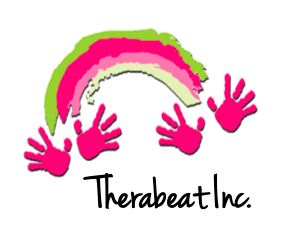Neurologic music therapy (NMT) is used by licensed music therapists with a certification specifically for individuals suffering from diseases in the nervous system. Oral Motor and Respiratory Exercises (OMREX) are used to assist individuals who are suffering from neurological disorders with functions such as breathing, speech, and articulation, among other things. People who can benefit from OMREX and NMT consist of individuals who have suffered a traumatic brain injury (TBI), stroke victims, and individuals with a diagnosis of dysarthria, Huntington's disease, and Parkinson's disease, among other forms of neurological disorders.
NMT utilizes certain techniques used by speech therapists to achieve goals in the areas of speech and breathing. Breathing and respiratory problems have been found linked to speech impairment, and the use of instruments such as the harmonica and the recorder, as well as singing, have been found to improve respiratory issues. In a study completed by Bonilha in 2009, the researcher found that individuals who suffer from respiratory issues who took singing lessons had greater improvement in their breathing and respiratory systems than individuals who did not receive the lessons.
The use of specific songs, vowel sounds, and instruments can be very vital to individuals improving breathing, articulation, and speech. For example, using the harmonica to work on fast and slow breathing, or sustaining breath, is just one way that the instrument can be utilized to improve speech and breathing. The recorder can be used to help clients find a round shape with their lips as well as sustain airflow. Singing songs with a lot of one consonant or vowel can allow the client to practice shaping and phrasing certain words or phrases.
Examples of particular interventions that can be used in NMT sessions include vocal exercises, such as having the client sing “ah” then rounding the lips and singing “oh”, then lips closed singing “mm”... and so on. This is to practice and prepare the transitions to new vowels and words when forming sentences. Playing music and participating with instruments or voice is also extremely motivating and is known for pushing clients to overcome particular obstacles in breathing, speech, and motor skills as well.
-Mallory McDonald, Music Therapy Intern
References
Alexander, J. L., & Wagner, C. L. (2012). Is harmonica playing an effective adjunct therapy to pulmonary rehabilitation? Rehabilitation Nursing : The Official Journal of the Association of Rehabilitation Nurses, 37(4), 207–212. https://doi.org/10.1002/rnj.33
Bonilha AG, Onofre F, Vieira ML, Prado MY, Martinez JA. Effects of singing classes on pulmonary function and quality of life of COPD patients. Int J Chron Obstruct Pulmon Dis. 2009;4:1-8. Epub 2009 Apr 15. PMID: 19436683; PMCID: PMC2672787.
Geist, K., McCarthy, J., Rodgers-Smith, A., & Porter, J. (2008). Integrating Music Therapy Services and Speech-Language Therapy Services for Children with Severe Communication Impairments: A Co-Treatment Model. Journal of Instructional Psychology, 35(4), 311–316.

